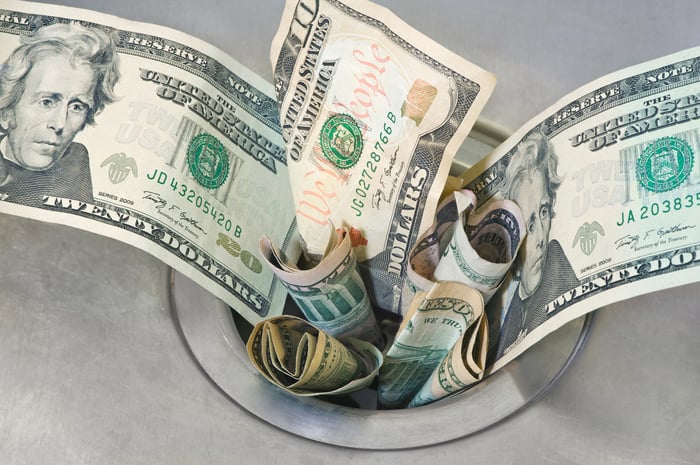Many people don't know enough about investing, or they're making incorrect assumptions about the stock market. That's not only a shame, but it's financially dangerous, as it can leave them underprepared for retirement or unable to accumulate a needed down payment. Here are some critical things to know about investing.

Image source: Getty Images.
Did you know that you can amass vast wealth?
You might assume that the stock market is mainly for wealthy people or that you can't get rich in it unless you're investing big bunches of dollars, but that's not the case. Check out how much money you can accumulate if you invest relatively modest sums each year and earn an average annual return of 8%:
|
Growing at 8% For |
$5,000 Invested Annually |
$10,000 Invested Annually |
$15,000 Invested Annually |
|---|---|---|---|
|
15 years |
$146,621 |
$293,243 |
$439,864 |
|
20 years |
$247,115 |
$494,229 |
$741,344 |
|
25 years |
$394,772 |
$789,544 |
$1.2 million |
|
30 years |
$611,729 |
$1.2 million |
$1.8 million |
Calculations by author.
Did you know that stocks outperform most alternatives?
If your interest is now piqued, good. But don't go thinking that you can do just as well with bonds, or gold, or some other option. You might, of course, but on average, over many decades, stocks are the best road to riches. Check out this data from Jeremy Siegel, professor at the University of Pennsylvania's Wharton business school, who has calculated the average returns for stocks, bonds, bills, gold, and the dollar, between 1802 and 2012:
|
Asset Class |
Annualized Nominal Return |
|---|---|
|
Stocks |
8.1% |
|
Bonds |
5.1% |
|
Bills |
4.2% |
|
Gold |
2.1% |
|
U.S. Dollar |
1.4% |
Data source: Stocks for the Long Run.
The annualized rate for stocks from 1926 to 2012 was 9.6%, by the way. Siegel's data shows stocks outperforming bonds in 96% of all 20-year holding periods between 1871 and 2012, and in 99% of all 30-year holding periods.
Did you know that all stock market crashes have been followed by recoveries?
Many people steer clear of stocks due to fears of losing their money in a market crash. It's true that you can lose a lot if you sell after a crash. But if you hang on, you will probably do fine. Check out this graph that Fool analyst Morgan Housel offered last year:

Successful investing is generally a marathon, not a bunch of sprints.

Image source: Getty Images.
Did you know that your emotions can cause financial harm?
Speaking of fear, your emotions can cost you a lot in investing. Too many people bail out when the market (or a stock they own) drops, locking in a loss or a smaller gain than they otherwise might have gotten. They may plan to jump back in later, but they can't know exactly when the best time to do so is, so they will often be on the sidelines during recoveries.
If a stock you own crashes, don't sell without figuring out why it fell. If it was just part of an overall market swoon, chances are it will eventually recover. If it's facing company-specific challenges, figure out whether those are temporary or permanent. For example, did a fire at one of its factories slow production, or did a competitor come out with a better, and cheaper, product?
Meanwhile, be careful with greed, too. It can have you jumping into stocks you know little about, with little regard for whether they're undervalued or overvalued, just because you see others profiting in them. A stock that has doubled isn't necessarily going to double again in short order.

Image source: Getty Images.
Did you know that fees matter a lot?
Whether you're buying shares of companies through a brokerage or investing in mutual funds on your own or through a retirement account, pay attention to the fees you're paying. Consider this example: Imagine mutual funds A and B, which respectively sport expense ratios (annual fees) of 0.7% and 1.7%, and that you park $5,000 in each of them annually for 20 years. If they each grow at an annual average rate of 10%, you'll end up with $289,000 in fund A but only $256,000 in fund B. That single percentage point cost you $33,000. Small differences in fees can result in big differences in long-term results.
There are plenty of other things to know about investing, many of which can lead to fatter profits and better portfolio performance. For best results, keep reading and learning.




